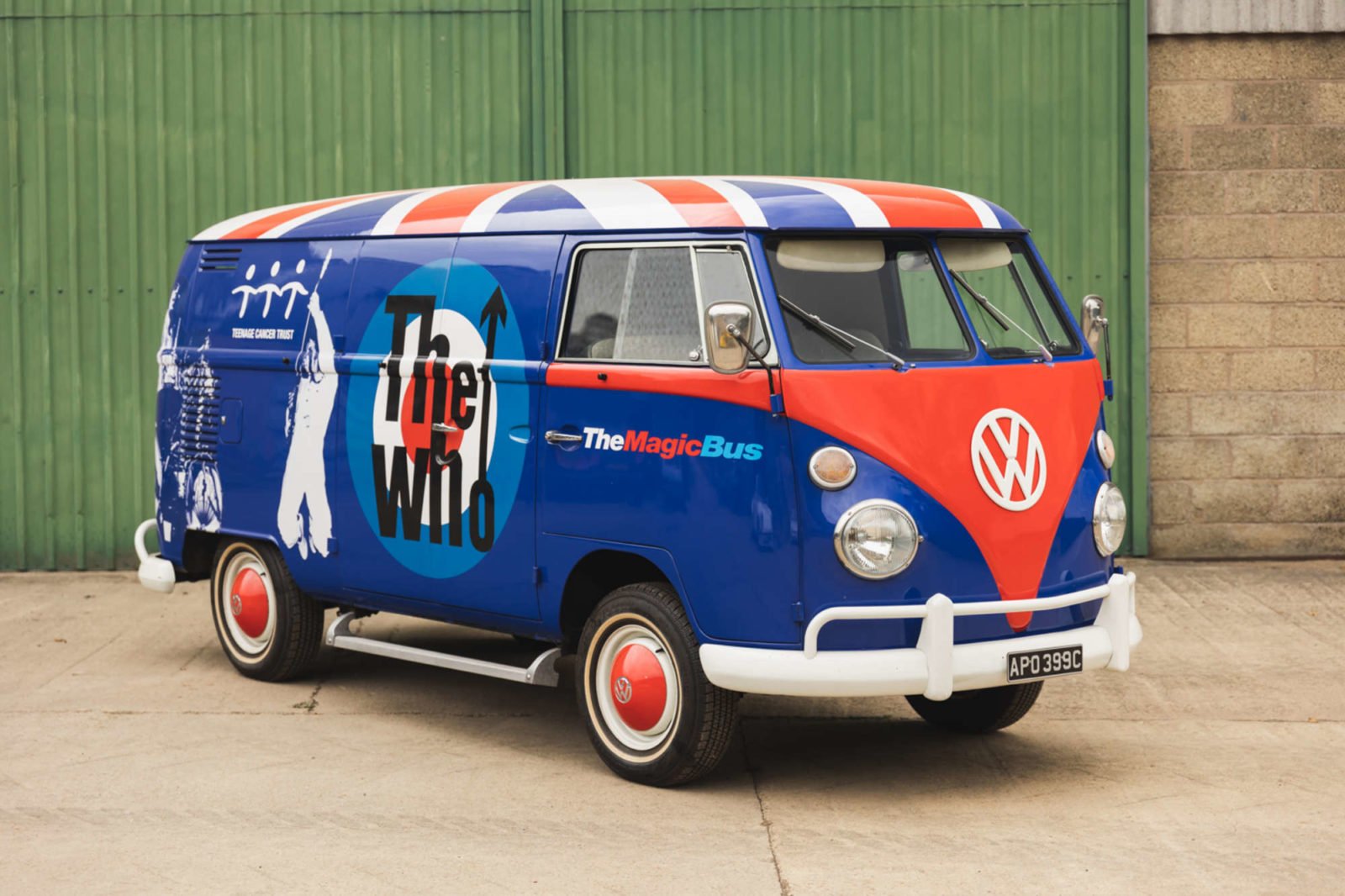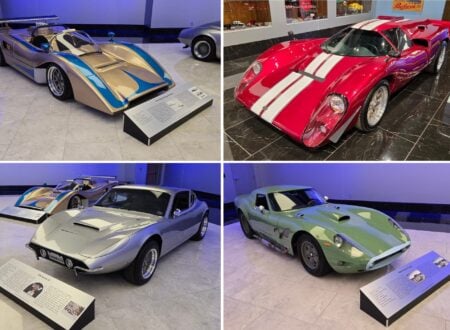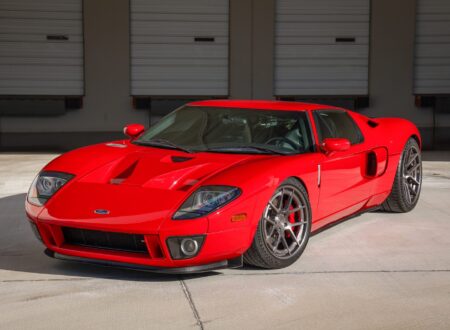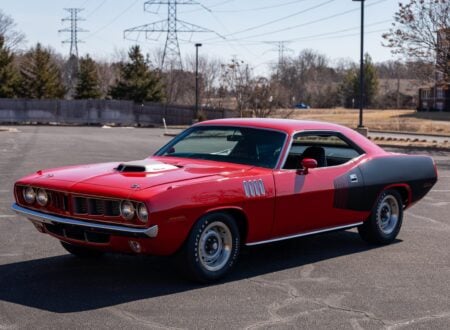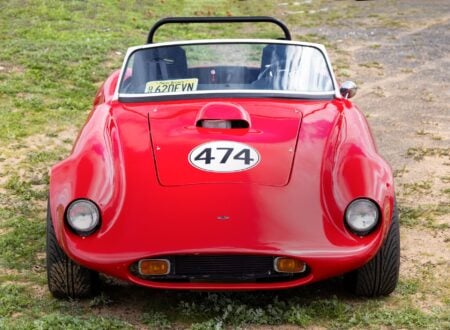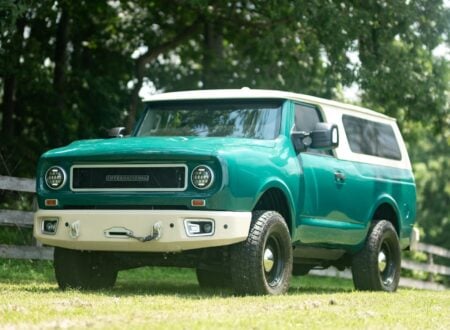Known as “The Who’s Magic Bus,” this 1965 Volkswagen Type 2 Panel Van was conceived of by Roger Daltrey (lead singer of band) along with Volkswagen to raise money for the Teenage Cancer Trust.
The concept was hashed out after the The Who performed at Volkswagen’s 60th Anniversary celebrations in Hanover. A period-correct VW Van was soured and converted into the “Magic Bus,” after the famous song of the same name by the legendary British rock band.
Fast Facts – “The Who’s Magic Bus”
- This 1965 Volkswagen Type 2 was sourced by VW and then restored in their famous “Old Timer” workshop in Hanover, Germany.
- Rather than restoring the van back to its original factory specification it was given a makeover, turning it into The Who’s Magic Bus – fully endorsed by the band.
- Once completed the unusual VW Bus was raffled off to raise money for the Teenage Cancer Trust, a charity that Daltrey is a long standing patron of. Over £30,000 was successfully raised.
- The Who’s Magic Bus is now due to roll across the auction block on the 27th of August with a price guide of £60,000 – £80,000, which works out to approximately $73,300 – $97,800 USD.
The Volkswagen Type 2
The Volkswagen Type 2 is perhaps the most logically named vehicle in world history, though being German that just what you might expect. The Type 2 was the second production vehicle made by VW after the Type 1 (better known as the Beetle) and as a result it was simply named the Type 2.
Above Video: This is The Who playing their hit song “Magic Bus” live in 1968. Though the song isn’t actually about the Type 2, it’s been adopted as an unofficial anthem by owners around the world.
The idea of building a van didn’t actually originate in a Volkswagen boardroom or drafting table, it was instead dreamt up by Dutch Volkswagen importer Ben Pon, who had seen a Plattenwagen in the VW factory in 1947 and realized it could be a brilliant production vehicle with some changes.
The Plattenwagen was essentially a highly-modified VW Beetle platform with a simple cargo carrier built in. Pon believed that giving such a vehicle a van body would create a cheap and easy to manufacture commercial vehicle with a broad range of potential uses.
Volkwagen liked the idea and early prototypes used a Beetle chassis, this was deemed not string enough and so a new platform chassis was developed that still used many Beetle components for the sake of simplicity – like the rear-mounted engine and gearbox.
Production of the Type 2 began in late 1949 with the original “split window” design. Different body configurations were offered including the Transporter, Kombi, Panel Van, and Microbus. The Type was given different names in different world markets including Bulli (Germany), Bus (US), and Camper (UK).
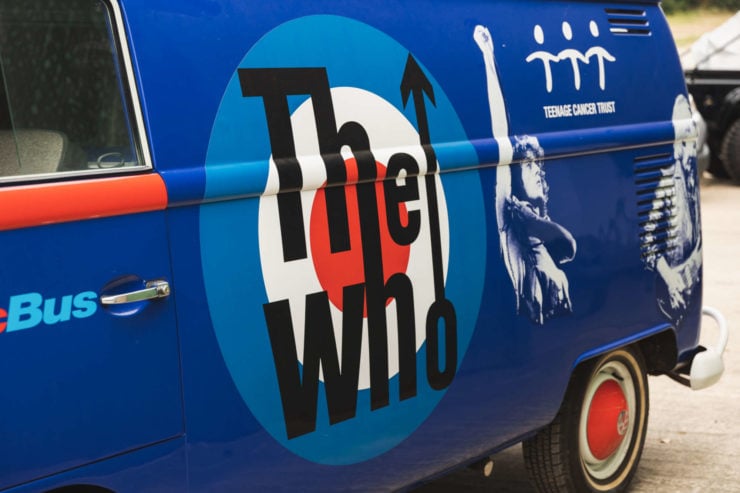

In 1967 the new second generation Type 2 was introduced, many of the earlier first generation models were now approaching 20 years old and as such they were relatively cheap on the second hand market.
Due to their low cost and the fact that you could sleep in the back, the Type 2 became a major fixture of the hippie movement in the United States in the 1960s. They would be painted with all manner of different designs and the van became an integral part of the zeitgeist of the swinging sixties.
The Who’s Magic Bus
Although it looks like it was designed in the 1960s the Type 2 you see here was actually created in the 2000s. The artwork was designed by Richard Evans – The Who’s art director who has worked closely with the band for over 40 years on album covers and tour designs.
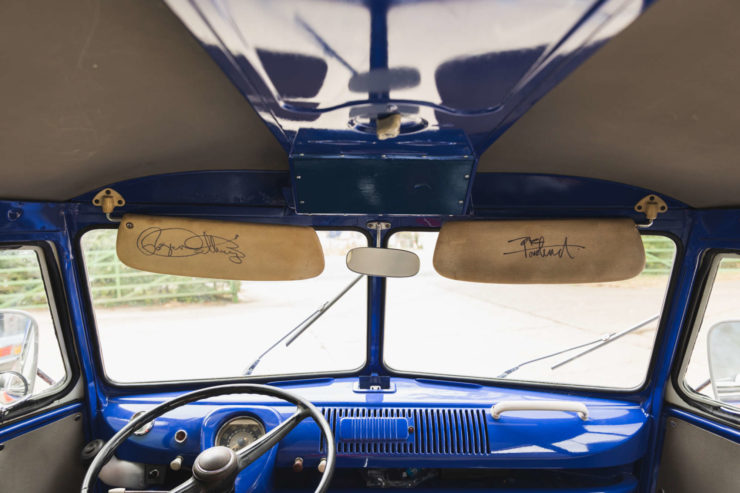

A 1965 Type 2 T1 left-hand drive panel van was sourced from California and shipped to the “Old Timer” workshop in Hanover, Germany where it was painstakingly restored by Volkswagen.
Once Richard Evans’ artwork had been applied Roger Daltrey and lead guitarist Pete Townshend autographed the sun visors. The van was then raffled off and raised over £30,000 for the Teenage Cancer Trust – a charity that Daltrey has been a patron of for many years.
The Magic Bus has now been in private ownership since 2012 and it’s now due to be offered for sale by Silverstone Auctions on the 27th of August with a price guide of £60,000 – £80,000 or approximately $73,300 – $97,800 USD.
If you’d like to read more about this history behind this unusual Type 2 or register to bid you can visit the listing here.
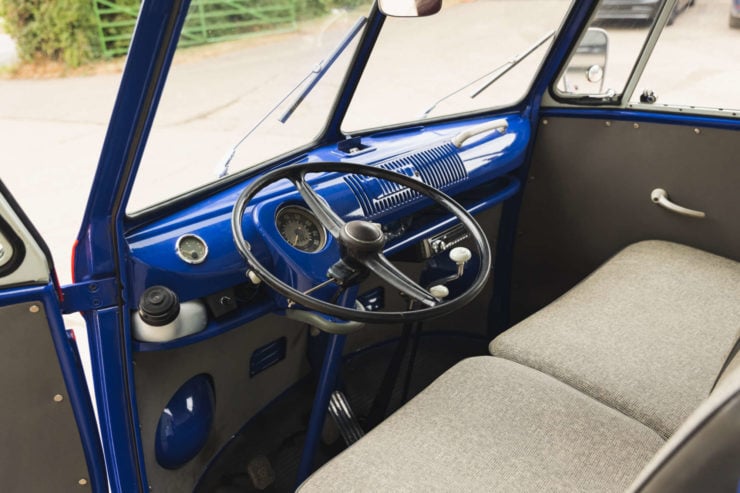
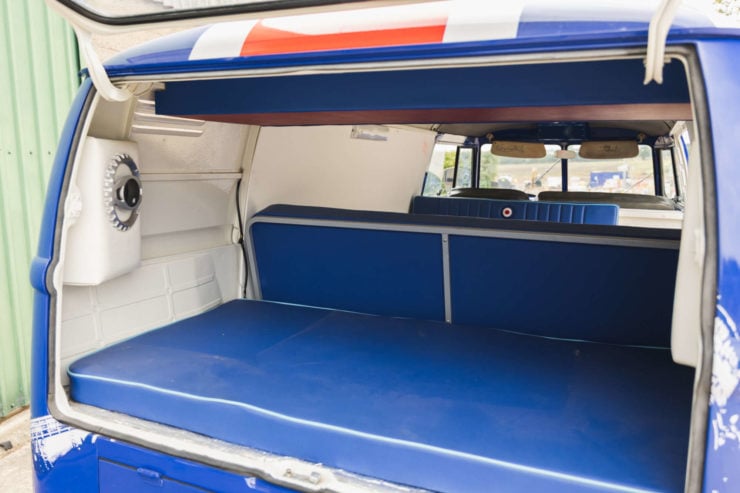
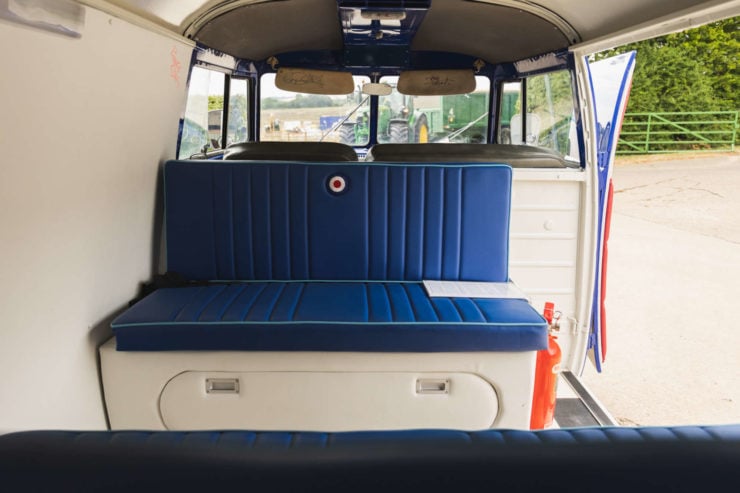
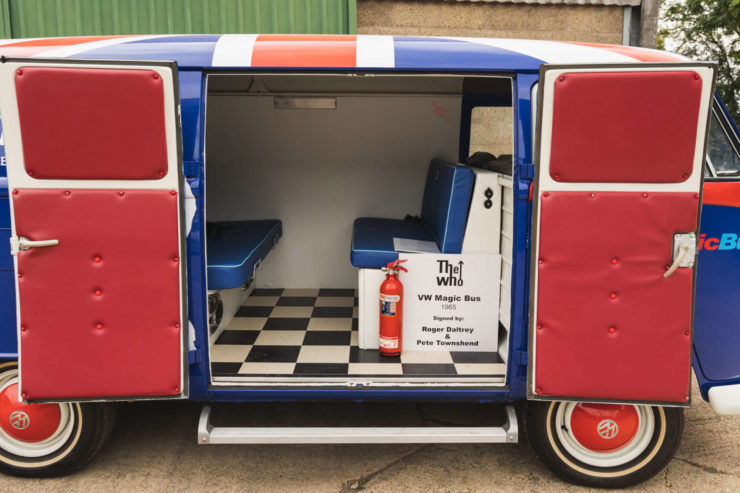
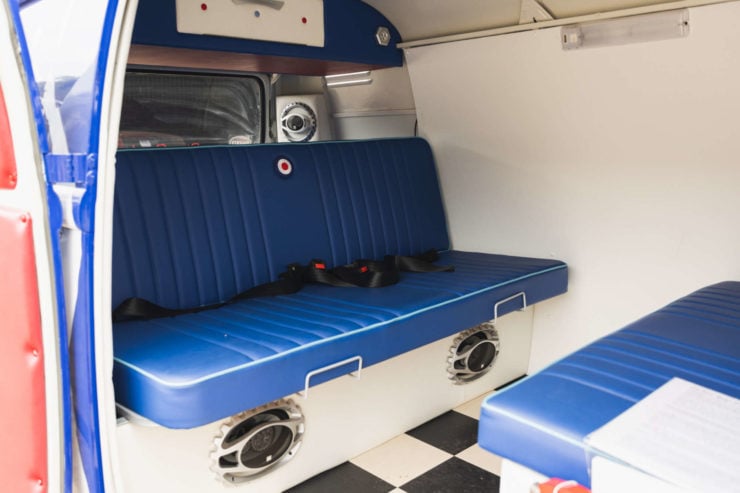
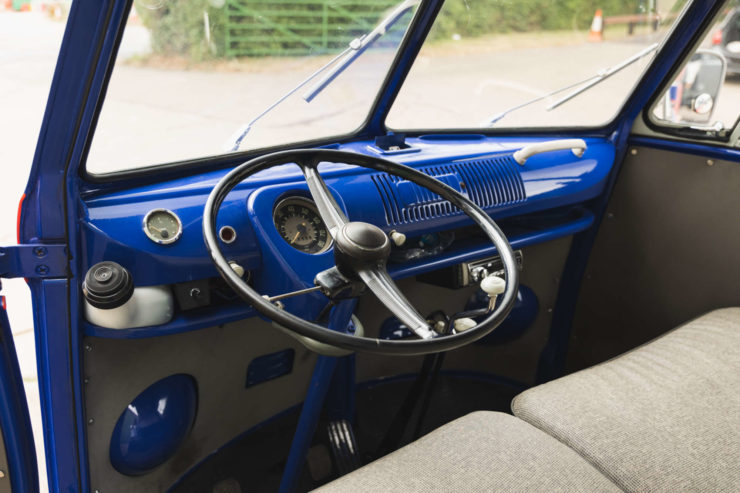
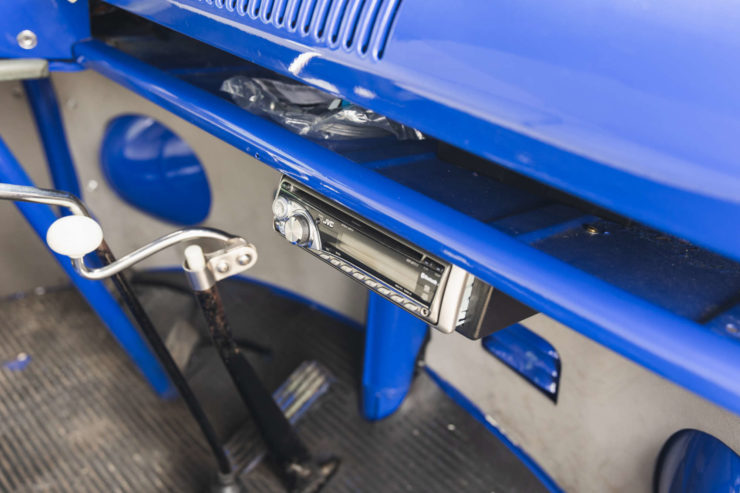
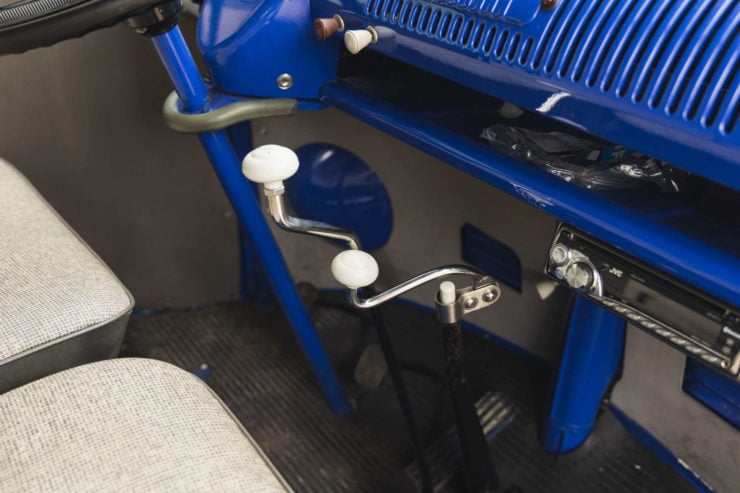
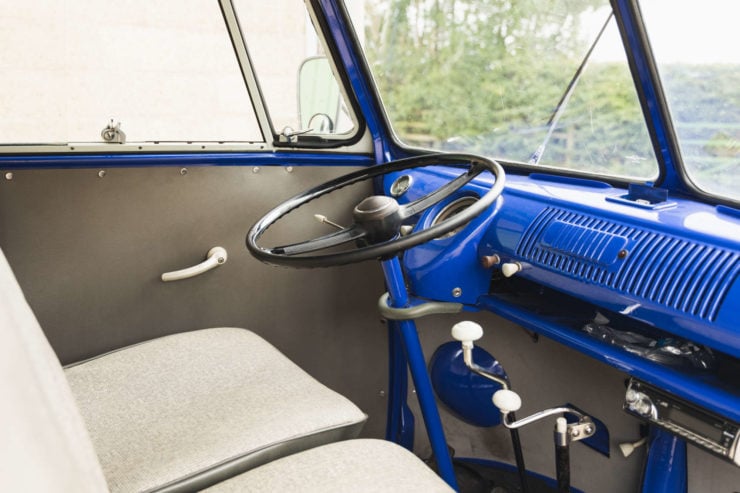
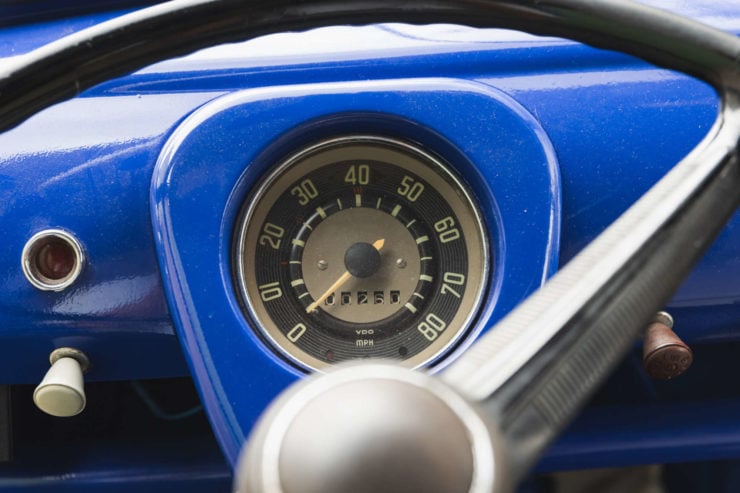
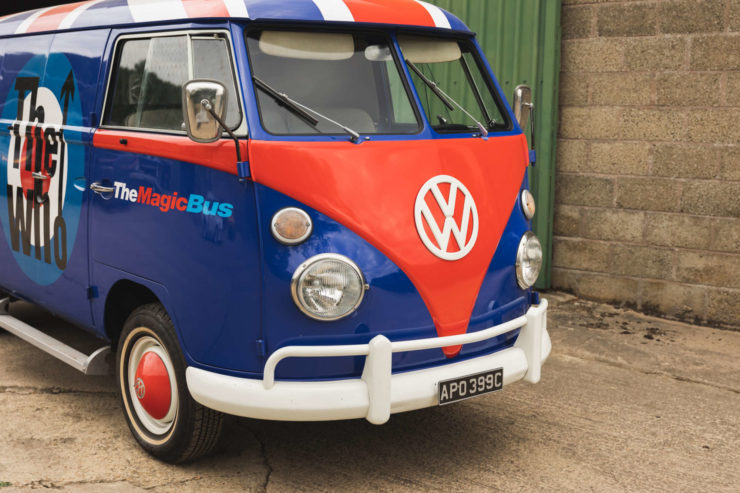
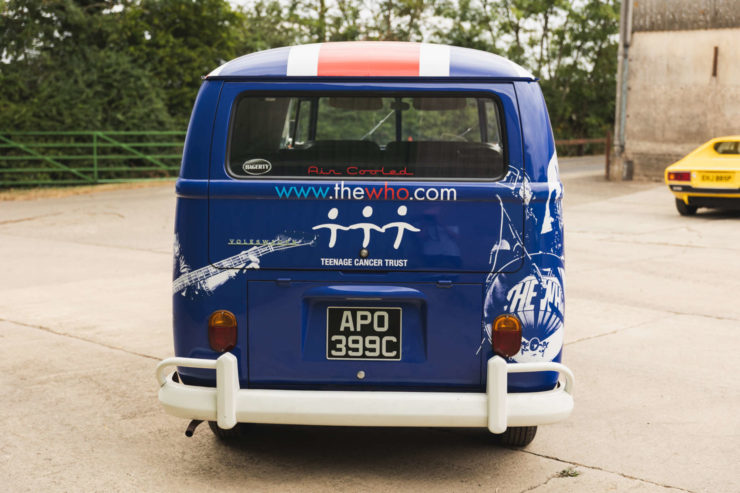
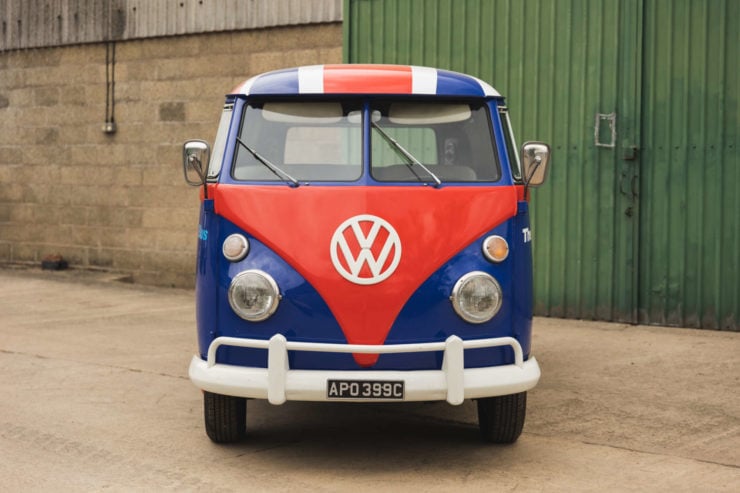
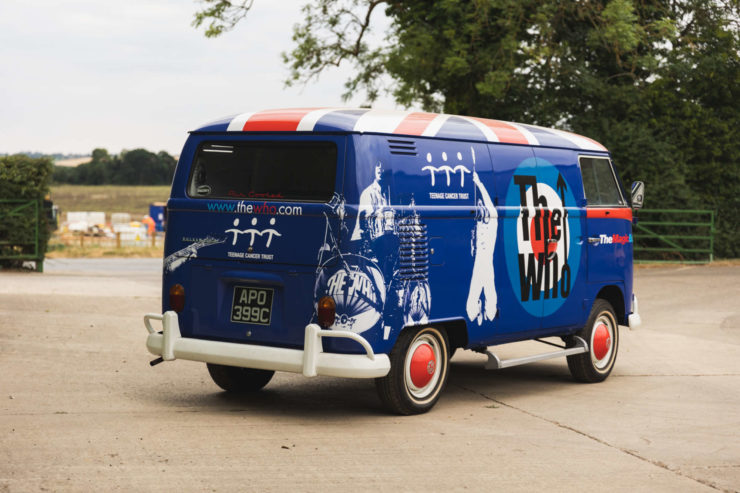
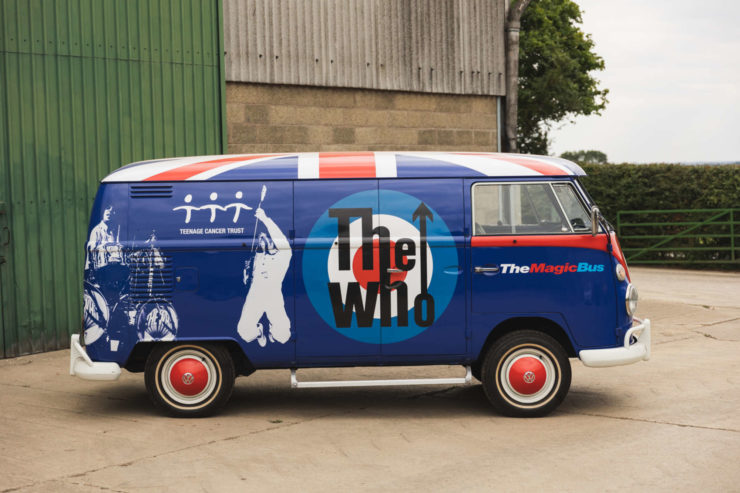
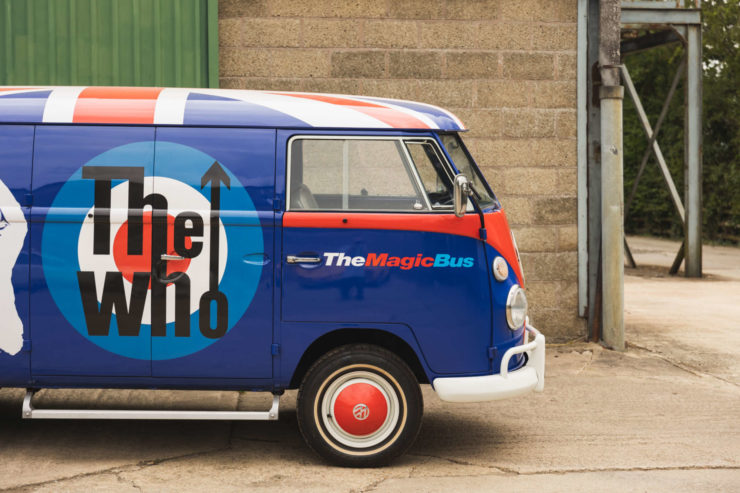

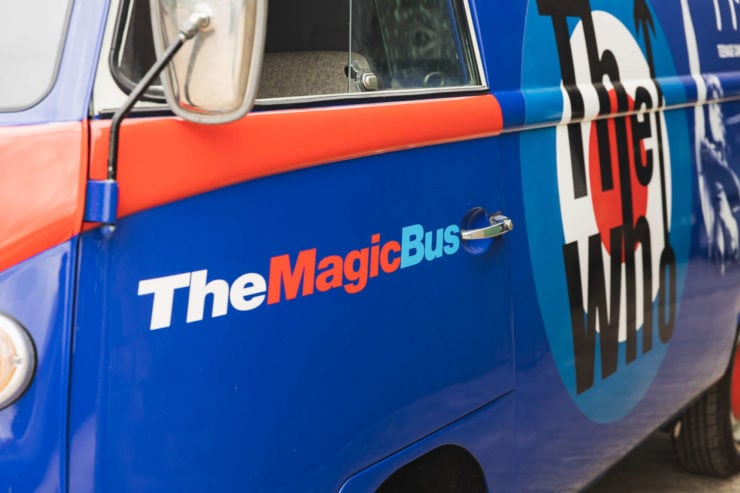
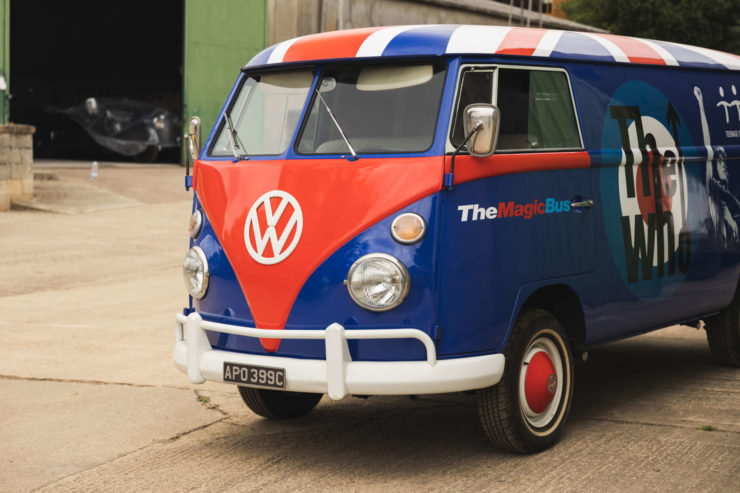
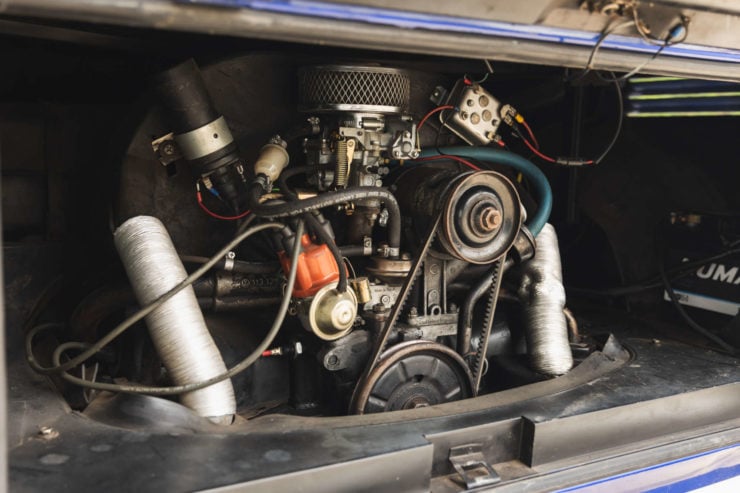
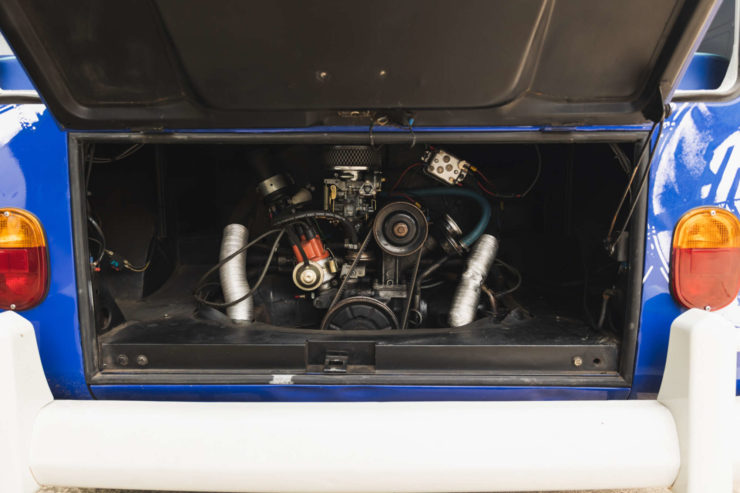
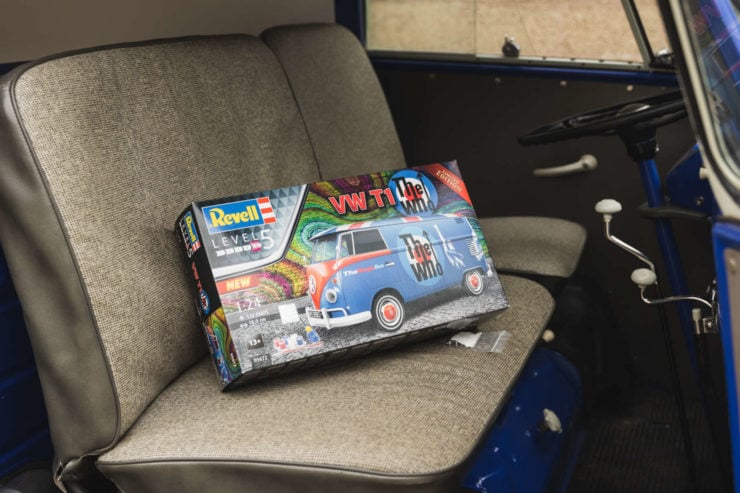
Images courtesy of Silverstone Auctions

